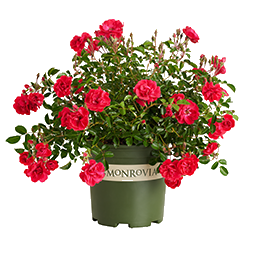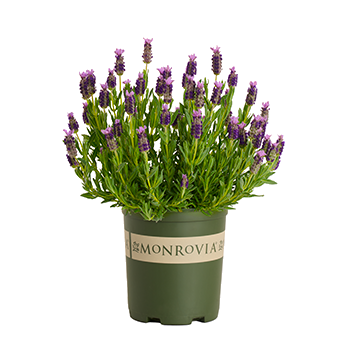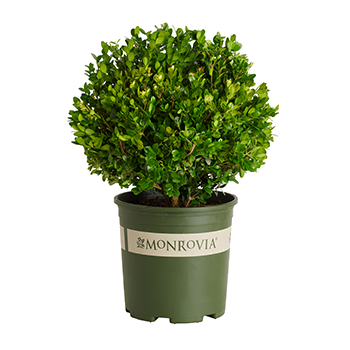There's no denying the transformative power of plants. At Monrovia, we've dedicated nearly a century to growing the best of them. So when it comes to bringing the magic of plants indoors, we're all in. We approach the cultivation of houseplants with the same strict attention to detail and quality as our outdoor plants. We think you'll be able to tell when you bring them home.
(Above) This neutral great room is decorated with a variety of large, mature houseplants. These will bring it to life with color, structure, and a cozy feel. Ginny Mini Monstera, Ficus umbellata, and Asian Council Tree fill the space in verdant foliage.
When you bring these plants into your space, you won't have to wait years for them to grow big and lush. Our craftsmen have already done that for you. That's why they're the perfect plants for home decor. They aren't experiments for your window sill. They're living works of art that bring your indoor space to the next level. The mature size and lush health make them great housewarming gifts, too. Take a look at this video to get the secret behind why our houseplants are so big and full. Even as soon as you pick them up from the store. (The secret is at the minute marker :25).
If you're ready to elevate your office, living room, or kitchen with the elegance of plants, we're here to help. Below you'll find indoor plant decorating ideas, care tips, and plant lists. Have a question about indoor plants that we didn't cover? Leave a comment below.
We'd also love to see your latest Monrovia houseplant haul on social media; be sure to tag us @MonroviaPlants.
How to Decorate with Houseplants
Decorating with large, mature plants instantly elevates the style of the room. Here are a few design tips to keep in mind as you fill your room with plants.
- The most important advice for designing with and growing indoor plants is the same as outdoor gardening. Grow the appropriate plant in the appropriate place (get more plant care tips at the end of this article).
- Add plants anywhere that needs an instant upgrade. Large, lush plants transform an ordinary space into a luxurious space.
- Use plants as works of art and decorative accessories in your rooms. Have an empty wall or space in a room that needs a special touch? A beautiful plant is a sure thing when it comes to impeccable style.
- Cluster small plants together to make a bigger impact.
- Fill bare spaces with plants large and small. From empty corners to gaps above cabinets, a plant will turn a dull void into a chic living display.
- Surround seating or lounge areas with plants to create a cozy, relaxing nook.
- Bring the outdoors in. Use your favorite garden trends to influence your interior design (and vice versa). Plants have a place in every style.
- Remember to plant in a container with proper drainage. If the container has drainage holes, use a container tray to prevent water from leaking onto your floor or shelving. Or, you can plant in a plastic pot with drainage holes, and then set that into a container without holes. If you're planting directly into a container without holes, place small pebbles or landscape rocks at the container's bottom. Do so before adding soil to allow for proper water drainage.
Get specific ideas for how to implement these home decor tips below.
Use Plants to Cozy Up in the Living Room
Adding several robust plants to a living room encourages relaxation. It lends a luxurious feel thanks to the lush softness of the foliage. Elements of nature can instantly set the mind at ease. A large plant is the simplest way to bring nature indoors. Surrounding a sitting area with tall plants and setting an interesting plant (like the Ginny Mini Monstera seen above). Placing these on the table sets the stage for cozy lounging, great conversation, or a relaxing cup of tea. Whether they act as a conversation starter or simply make a room feel more comfortable. Large plants turn a living room into a room with life.
Design advice: Plant tall, mature plants like Monstera, Ficus trees, and rubber plants (Ficus elastica) in large, neutral containers. Place on the floor in corners, behind couches, and next to side tables to surround the space with green foliage. Smaller, shorter plants like Ginny Mini Monstera, Birkin Philodendron, Raindrop Peperomia, and Calathea. These are perfect for placing on top of coffee and side tables.
Pictured here: Ginny Mini Monstera (Rhaphidophora tetrasperma), Ficus umbellata, and Ficus altissima 'Variegata'
Your front entry sets the tone of your home for guests. Filling your entryway with plants can be as good as a warm hug. Especially when making visitors feel warm and welcome when they arrive. While your front entry welcomes guests and creates impressions, your side entry welcomes you and your family home every day. Place plants that make you smile near your daily entrance to cultivate daily happiness in your home.
Design advice: Fill entryways, mudrooms, and foyers with striking plants. Ones that reflect the style of your home and welcome guests with an inviting scene. Dark plants like the Melany or Abidjan rubber plant look striking against a light wall. (Think the popular "Dark and Light" trend). Dramatically variegated plants like Birkin Philodendron or Burle Marx Calathea are enticing set up on a table. Here they can be enjoyed closely upon arrival. The glossy leaves of plants like Raindrop Peperomia reflect the light coming through the open door. Thus, making them shine even brighter.
Pictured here: Melany Rubber Plant (Ficus elastica 'Melany') and Raindrop Peperomia (Peperomia polybotrya)
Create an Inspiring Workspace
Did you know that plants can help you be more productive at work?This study is just one of many that conclude that having plants in your workspace can increase productivity. As well as workplace satisfaction, concentration, and air quality. Many of us spend most of our days in our workspace. Therefore, it's arguably the top priority to make it feel comfortable, inspiring, and joyful. So, whether you work in your home or away from it. It's time to start adding big, beautiful plants to your space. The touch of nature and pop of color adds an element of style. It also adds subtle inspiration and stress relief.
Design advice: Place large plants like Ficus (all varieties) and Monstera on the floor next to your desk. This will soften the edges of your desk and hide extension cords. Add smaller plants like Birkin Philodendron, Raindrop Peperomia, and Burle Marx Calathea to your shelves and desktop. This will give the feeling of being surrounded by nature. If your office space includes a hallway or waiting room, remember to add a tall plant. This will create a cohesive experience for everyone who enters.
Pictured here: Birkin Philodendron (Philodendron erubescens), Asian Council Tree (Ficus altissima 'Variegata'), Melany Rubber Plant (Ficus elastica 'Melany'), and Dwarf Swiss Cheese Plant (Monstera deliciosa 'Tauerii')
Add Excitement to an Empty Corner
There's nothing better than large plants to turn a dull, empty corner into a lively space full of interest. Where tables and bookshelves can be awkward, one or more plants look right at home. If you have a corner of your home that has been challenging to fill in a stylish way. Plants may be your design solution.
Design advice: The biggest design challenge is lack of light. Unless there's a nearby window, many corners of your house will have low-light conditions. As always, choose your plants accordingly. Corners are the perfect place for tall, narrow containers like you see in the picture above. You can choose one large plant to fill the corner. Or, mass two or more houseplants to create a lush corner of foliage. Not sure how to elevate a houseplant in a tall container like you see above? We tell you how to do it in this video.
Pictured here: Dwarf Swiss Cheese Plant (Monstera deliciosa 'Tauerii') and Melany Rubber Plant (Ficus elastica 'Melany')
How to Care for Your Indoor Plants
Like the plants you carefully chose for your garden, indoor plants have varying needs to thrive. Before choosing plants for your home, look at the plant and care details on their label or webpage. Choose your plants accordingly.
Light Requirements
Read the plant care details of your new houseplant. Be sure to place it where it will get the amount of light it needs to thrive. Keep plants that need more light in your well-lit rooms. Keep plants that are happy in low light in your darker corners and spaces further away from windows. The good news is that you can move your plants around until you find their perfect spot. Therefore, there's no need to stress (plants are meant to be a source of relaxation, after all).
Watering
Generally, the watering issue that indoor plant owners run into is overwatering their houseplants rather than underwatering them. Use well-draining soil when re-potting and only water when the top two inches of soil is dry. Here's the best way to tell if you need to water your plants. Push your finger into the top layer of soil. If it's still wet, wait! If it's dry, saturate the soil.
Humidity Levels
Some plants, like most ferns, require more humidity than others when grown indoors. For plants that like a higher humidity level, you can do a few things. One option is to place plants on a pebble tray. Or, a tray that is filled with small pebbles and a bit of water. Another is to keep a humidifier nearby. And a third option is to keep humidity-loving plants in the bathroom. Here there's an almost daily source of humidity from shower steam.
Feeding or Fertilizing
Again, plant needs will vary in this department, so always follow care instructions. Generally, fertilizing monthly with a water-soluble houseplant fertilizer will keep most plants happy.
Cleaning or Dusting
The biggest difference between growing plants indoors and outdoors? Dust. Use a soft cloth or gentle shower to clean your plants every week or two. This will keep plants healthy by allowing the leaves to capture the sunlight they need to thrive. Plus, plant leaves just look better when they're clean.
Deadheading, Pruning, and Pinching Back
Like your outdoor plants, indoor plants also need the occasional trim. Pinch off dead or discolored leaves and flowers to keep them looking fresh. You can also prune plants to keep them smaller or to encourage new growth. Quick-growing plants tend to look bushier and more compact if you pinch them back more often.
Pests and Diseases
Spray your plant with neem oil or insecticidal soap. (If you run into issues with pests like aphids and spider mites.) Allow the soil to dry completely between watering to avoid the common fungus gnat infestation. If gnats or flies do become an issue, try a sticky fly catcher square on a toothpick in the soil. (Never use these outdoors as they are unsafe for beneficial insects, pollinators, and other wildlife). Remove diseased leaves as soon as you notice them to keep any disease from spreading. If a plant is continuously being plagued with disease or pests, try this. Repot it into fresh soil and a clean container.
Our Favorite Houseplants for Elevated Indoor Style
Large, Lush, and Dramatic Rubber Plants
Tineke
Rubber Plant
Green and white leaves blush with pink. Keep it small to fit your space, or allow it to grow into a tall statement plant. Up to 6' tall and 2' wide.
Abdijan
Rubber Plant
New leaves emerge in spikes. They are covered in a bright-red sheath that adds a splash of color to the dark-green leaves. Up to 6' tall and 2' wide.
Melany
Rubber Plant
Dark, glossy green leaves have a dramatic hint of burgundy. New leaves emerge in spikes with light-pink sheath. Up to 6' tall and 2' wide.
Newly Available Ficus Tree Varieties
Ficus Audrey
A selected variety of Banyan, which is beloved for its trunk-like aerial roots. Makes a great easy-care, low-light large houseplant with emerald green leaves and a distinctive white trunk. Up to 10' tall and 3' wide.
Asian Council Tree
This gorgeous statement plant has variegated foliage that makes a great focal point. A great low-water option (make sure to let the soil dry before watering). Up to 6' tall and 2' wide.
Ficus umbellata
A rare indoor plant that is gaining popularity. This African native has huge heart-shaped leaves and grows into an upright tree. Requires bright, indirect light and high humidity. Up to 4' tall and wide.
Other Favorite Houseplants

Birkin
Philodendron
An easy-going tropical plant that makes a big impact in living spaces. Green new leaves develop white variegation over time. Prefers bright, indirect light. Up to 2' wide and 2' wide.
Raindrop
Peperomia
A versatile, easy-care, and compact houseplant with short-live, finger-like white flowers. These have a sweet fragrance and leaves that are larger than most of its kind. Up to 12" tall and wide.
Dwarf Swiss
Cheese Plant
This might be a "dwarf" variety, but it will still become a large, beautiful accent in a bright room. Young leaves develop their beloved perforations earlier than other varieties. Up to 6' tall with support.
More Resources for Growing Large Houseplants
- Find large, healthy, and thriving Monrovia houseplants at your local Monrovia retailer.
- Sign up for the Grow Beautifully newsletter. You'll get first access to exclusive plants, new editions, live webinars, free digital guides, expert design advice, and gardening tips.
- Here's a video on how to create an elevated indoor container for your houseplants
- Here's a video on why large Monrovia houseplants are able to create instant satisfaction
- 8 Ferns You Can Grow Indoors
- How to Overwinter Tropicals Indoors
- Stay tuned! We're growing more large, beautiful houseplants every season.

















